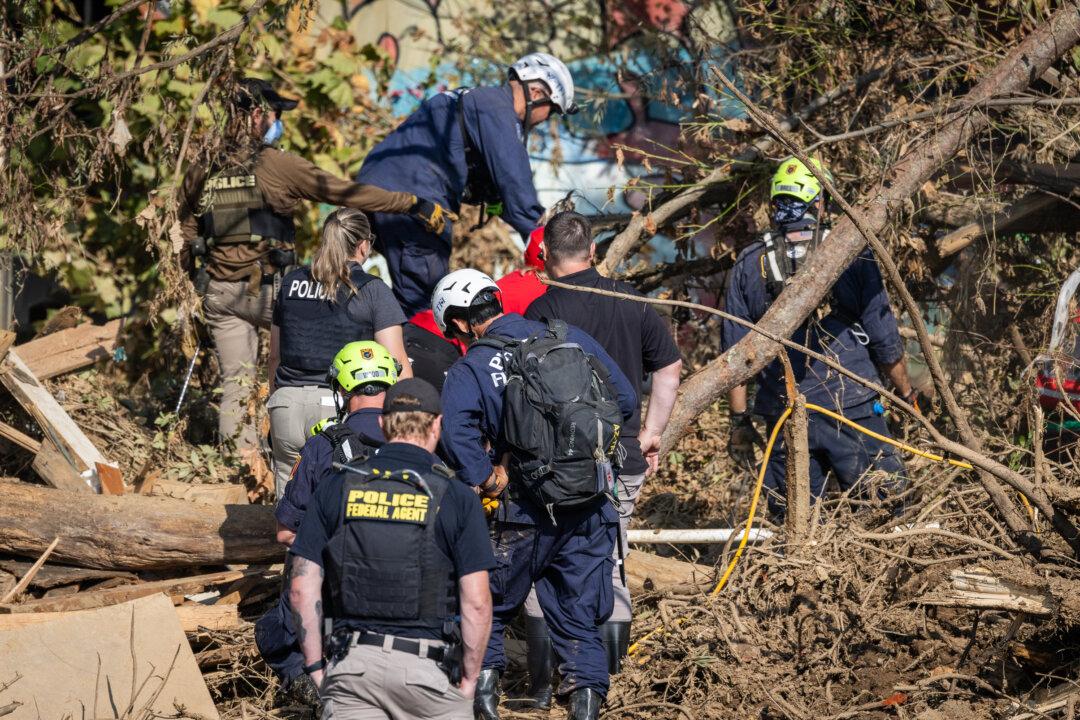ASHEVILLE, N.C.—About two weeks have passed since raging floodwaters and landslides from Hurricane Helene reached western North Carolina, devastating urban and rural communities and severely damaging roads, homes, and power sources.
Because hundreds of roads were blocked or completely washed away, rescue crews had to reach victims by mule, horseback, and on foot. Rescue efforts are still underway and continue around the clock.





